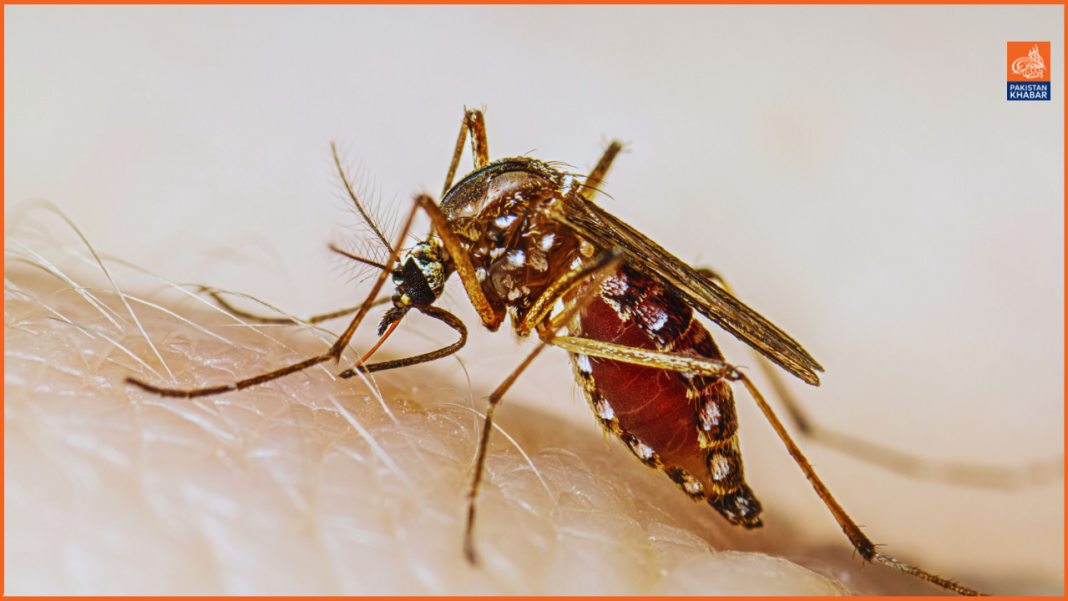Dengue fever continues to pose a significant public health challenge in Rawalpindi, leading the Punjab government to declare a health emergency in the city. This decision comes in response to a sharp increase in cases, with 103 new infections reported just on Tuesday. As of now, Rawalpindi has experienced six fatalities and a total of 1,358 confirmed cases this season, while 1,169 individuals have been successfully treated and discharged from hospitals. Unfortunately, 181 patients remain hospitalized, grappling with the effects of the disease. Comparatively, Lahore has recorded a mere 201 cases since the start of the year.
In a proactive measure, the Cabinet Committee on Prevention of Dengue, Infectious Diseases, and Disaster Management convened at the Civil Secretariat in Lahore. The meeting, presided over by Punjab Minister for Specialized Healthcare Khawaja Salman Rafique and Chief Secretary Zahid Akhtar Zaman, aimed to assess the current situation regarding dengue outbreaks, focusing particularly on Lahore, Rawalpindi, and Faisalabad. Minister Khawaja Imran Nazir joined the discussions via video link, highlighting the collaborative effort to address this urgent health crisis.
During the meeting, the committee underscored the necessity of tailored clinical management for dengue patients to mitigate mortality rates. They appointed a technical group to investigate the causes behind the fatalities in Rawalpindi and evaluate the conditions of patients still receiving treatment. Mr. Rafique emphasized the importance of ensuring that private hospitals are prepared to accommodate dengue patients if public facilities become overwhelmed.
Additionally, a targeted awareness campaign was discussed to educate the public about the symptoms and dangers of dengue fever. Minister Nazir pointed out that while Lahore’s situation is relatively stable due to effective surveillance measures, there is a pressing need to remain vigilant, particularly in Rawalpindi, where cases are escalating.
The Chief Secretary mandated an increase in the capacity of government hospitals in Rawalpindi to ensure adequate care for dengue patients. He assured that necessary resources, including medications and facilities, would be allocated to public hospitals. Accurate data collection and analysis were deemed critical for effective planning and response strategies.
Further updates from Primary and Secondary Health Secretary Nadia Saqib revealed that the province had documented 1,724 confirmed dengue cases and seven deaths to date, with Rawalpindi responsible for six of those fatalities. The Rawalpindi deputy commissioner noted that 29 private hospitals are prepared for emergencies, while action has been taken to seal 142 private clinics that failed to report dengue cases.
Minister Imran Nazir’s visit to Rawalpindi emphasized the need for immediate action to encourage residents to seek medical help if they exhibit any symptoms of dengue. He urged health practitioners and laboratories to promptly refer patients to major hospitals, reinforcing the critical nature of early diagnosis and treatment.
In light of the current peak dengue season, plans to double the hospital bed capacity from 300 to 600 are underway. Nazir instructed hospital staff to ensure that department heads in dengue wards closely monitor critical patients, performing checks at least three times a day.
As part of the broader strategy to combat the dengue outbreak, Dr. Hassan Waqar Cheema, the Deputy Commissioner, reported ongoing collaborative efforts with Islamabad and Chaklala Cantonment Boards. Since January, significant measures have been implemented, including issuing 3,490 FIRs and 2,301 challans, sealing 1,373 buildings, and imposing fines totaling Rs1,612,900 for violations related to dengue prevention.
The situation remains dynamic, requiring ongoing vigilance and cooperation from all stakeholders to effectively manage and mitigate the impact of dengue in Rawalpindi and beyond.




